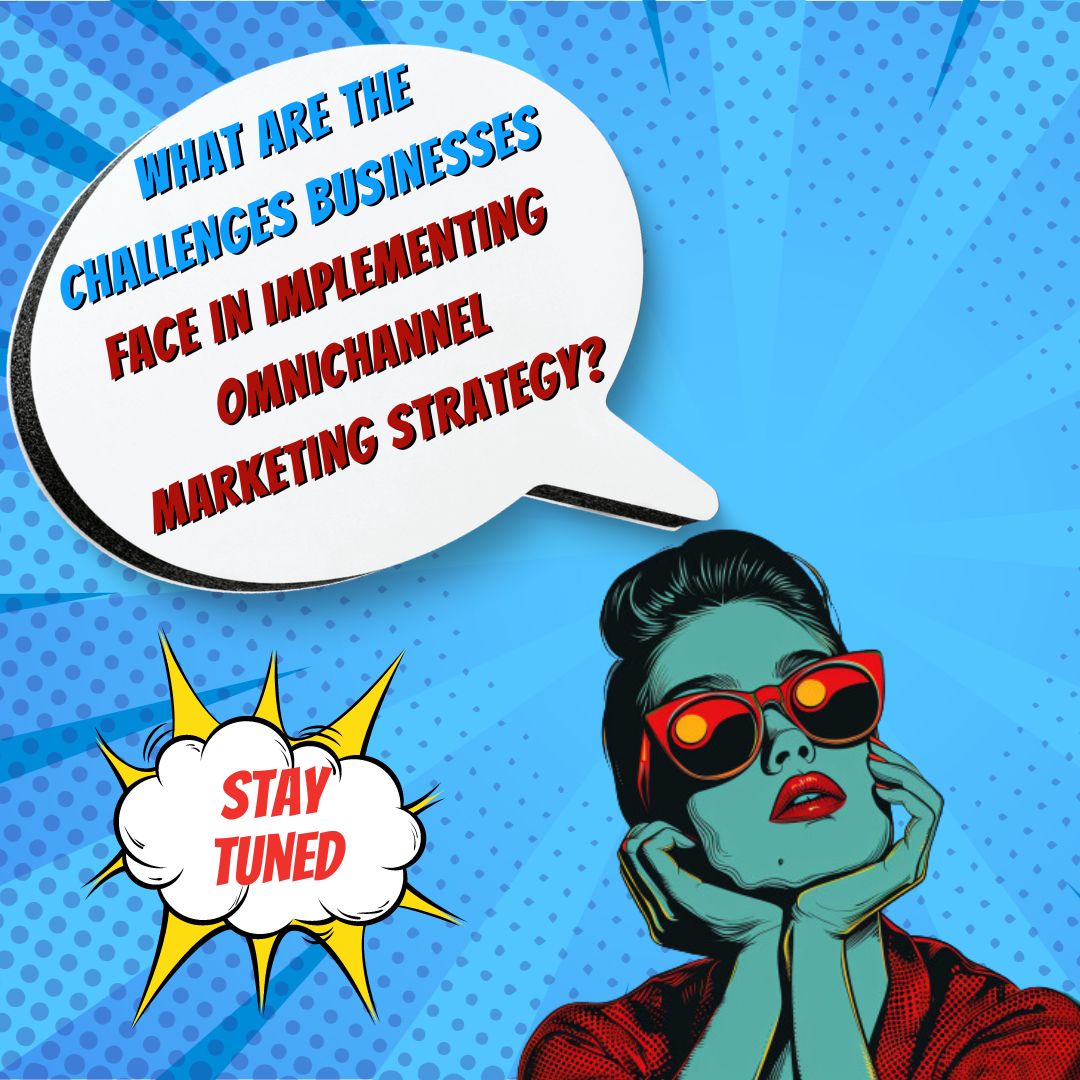Key Takeaways
✅ Data Integration and Management: One of the primary challenges in omnichannel marketing is the integration of data from various sources. Audits can identify gaps in data integration and facilitate seamless information sharing across channels, enhancing customer experience.
✅ Balancing Automation and Human Touch: Finding the right balance between automation and human interaction is crucial. Conducting audits can help businesses evaluate and optimize their automation processes while maintaining personalized customer interactions.
✅ Measuring Success and ROI: Tracking and attributing results across multiple channels can be complex. Audits provide robust measurement frameworks and attribution models to accurately evaluate your omnichannel efforts and make data-driven decisions. 
Introduction
How can businesses overcome the persistent hurdles of integrating multiple channels? Conquering the Challenges of Omnichannel Marketing is crucial for providing a seamless customer experience, yet many companies struggle with data silos, inconsistent branding, and balancing automation with personal touch. Audits play a pivotal role in pinpointing these issues and improving overall effectiveness. This article dives into innovative strategies and modern trends to enhance your Return on Investment (ROI) through targeted audits. Get ready to uncover actionable insights that can transform your omnichannel approach.
Top Statistics
| Statistic | Insight |
|---|---|
| Companies with omnichannel customer engagement strategies retain 89% of their customers. | This highlights the importance of holistic engagement efforts in maintaining a loyal customer base, showing how comprehensive strategies contribute to customer retention. |
| Omnichannel marketing can bring nearly six times more sales than single-channel marketing. | This statistic underscores the immense sales potential of omnichannel strategies over limited, single-channel approaches. It's clear why diversification is key in today's market. |
| Using three or more channels increases the order rate by 494%. | Multi-channel engagement makes a stark difference in customer behavior. Retailers must note the pronounced advantage in order rates when multiple channels are used.] |
| More than 60% of consumers participate in omnichannel shopping. | Consumer behavior trends show a prominent shift towards omnichannel shopping, highlighting the necessity for businesses to provide integrated shopping experiences. |
| Only 8% of retailers can provide omnichannel in real time, all of the time. | This marks a significant gap in real-time omnichannel capabilities, stressing the need for better technology and coordination among retailers to meet customer expectations. |
Omnichannel Marketing and Its Challenges
Omnichannel marketing integrates various communication channels, offering a seamless customer experience across all touchpoints. This strategy enhances customer engagement by allowing them to switch between channels smoothly, be it online or offline. According to research, companies with strong omnichannel strategies retain 89% of their customers, compared to 33% for companies with weak strategies.
However, implementing omnichannel marketing isn't without its challenges. Businesses often struggle with maintaining consistency across all channels and ensuring that data from different sources integrate seamlessly. Additionally, there are considerable technological and operational barriers that can hinder the smooth execution of an omnichannel approach.
The Role of Audits in Omnichannel Marketing
Audits play a crucial role in ensuring your omnichannel efforts are on the right track. The audit process involves a systematic review of all your marketing channels to assess performance, consistency, and customer experience. Regular audits help identify gaps and inefficiencies, allowing businesses to fine-tune their strategies.
Key areas to focus on during an audit include brand consistency, customer experience, and data integration. Ensuring these elements are in harmony can significantly enhance the effectiveness of your omnichannel marketing.

Conducting an Omnichannel Business Audit
The first step in conducting an effective audit is to evaluate each channel separately, examining its performance metrics and user interactions. Once individual assessments are complete, it's essential to look at how all channels work together to create a coherent customer journey.
Tools such as Order Management Systems and analytics software are invaluable for this process. These tools provide comprehensive data on how your channels interact, offering insights that can drive strategic decisions.
Overcoming Data Integration Challenges
One of the most daunting aspects of omnichannel marketing is data integration. Common challenges include fragmented data sources and incompatible systems. Strategies such as federated learning and probabilistic tracking can help in addressing these issues, by providing more sophisticated means to collect and integrate data.
Best practices for data management include maintaining a single customer view and using advanced analytics to interpret user behavior across various channels. This not only helps in making data-driven decisions but also in creating a more personalized customer experience.
Best Practices for Omnichannel Marketing
Key principles for successful omnichannel marketing include personalization, consistency across channels, and a customer-centric approach. Strategies like personalized recommendations and consistent messaging can significantly enhance customer satisfaction.
Continuous improvement is also crucial. As customer behaviors evolve, so should your strategies. Regularly updating your tactics based on customer feedback and market trends ensures you stay ahead in the dynamic marketplace.
The Power of Audits in Omnichannel Marketing
Regular audits are essential for the long-term success of your omnichannel strategy. They help you identify areas of improvement and keep your channels aligned with your business goals.
As we move forward, the future of omnichannel marketing will likely involve even more advanced technologies and data-driven insights. Staying agile and open to change will be key in leveraging these opportunities.
In summary, audits are an indispensable tool in driving the success of your omnichannel marketing strategy, ensuring a unified customer experience and operational efficiency.

AI Marketing Engineers Recommendation
Recommendation 1: Conduct Regular Omnichannel Strategy Audits: To effectively navigate through the myriad of channels available, it's crucial for your business to conduct regular omnichannel strategy audits. According to a study by Forrester, 62% of businesses noted an increase in positive customer feedback after performing quarterly audits. These audits help identify gaps in customer experience, enabling you to streamline touchpoints and ensure a consistent brand message across platforms.
Recommendation 2: Leverage Customer Data Insights Through Advanced Analytics: Current trends indicate that businesses using data-driven insights perform better in managing multiple channels. McKinsey reports that companies leveraging customer insights through advanced analytics are 23 times more likely to acquire customers. By integrating analytics tools, you can gain deeper insights into customer behavior, preferences, and engagement levels, ensuring each channel is utilized to its fullest potential.
Recommendation 3: Utilize Unified Customer Profiles For a Cohesive Experience: Create and maintain unified customer profiles that encompass data from all channels. Tools like Customer Data Platforms (CDPs) are excellent for this purpose. According to Gartner, 82% of marketing leaders found CDPs essential for delivering personalized experiences. By having a single source of truth for customer data, you can ensure that your messaging is relevant and personalized, enhancing overall customer satisfaction and loyalty.
Relevant Links
- Unlock the Power of Omnichannel Marketing: Boost Customer Loyalty and Engagement
- Reveal the Secrets to Effective Data Integration in Omnichannel Strategies
- Master the Art of Unified Customer Experiences with Creative Optimization
- Achieve Marketing Synergy: Conducting Cross-Channel Audits for a Holistic Strategy
Conclusion
In conclusion, the importance of omnichannel marketing cannot be overstated in the modern business landscape. Its ability to integrate various customer touchpoints into a seamless experience is paramount, yet it's laden with challenges. Businesses often struggle with data integration, brand consistency, and delivering a cohesive customer experience across channels. This is where the role of audits becomes crucial. Through a structured audit process, companies can evaluate each channel separately and collectively, ensuring that inconsistencies are swiftly addressed.
Regular audits benefit businesses by uncovering hidden issues and optimizing operations. Key areas to focus include brand consistency, customer experience, and data integration, which are essential for effective omnichannel marketing. By following best practices and employing strategies such as federated learning and probabilistic tracking, companies can overcome data challenges and enhance their marketing efforts.
As we look to the future, businesses that prioritize continuous improvement and adaptability will thrive. The role of audits in omnichannel marketing cannot be understated—they are not just a tool for compliance, but a catalyst for growth and success. Is your business ready to harness the power of audits to navigate the complexities of omnichannel marketing? If so, the rewards could be substantial, ensuring not only consistency and personalization but also a competitive edge in an ever-evolving market.

FAQs
Question 1: What is omnichannel marketing?
Answer: Omnichannel marketing is a marketing strategy that integrates multiple channels (online and offline) to provide a seamless and comprehensive customer experience. It ensures consistency in brand image, voice, and information across all channels, allowing customers to interact with the brand in various ways.
Question 2: What is the difference between omnichannel, multichannel, and cross-channel marketing?
Answer: Omnichannel marketing integrates all channels to provide a unified experience. Multichannel marketing involves using multiple channels separately, while cross-channel marketing involves using multiple channels but with some integration.
Question 3: Why is omnichannel marketing important?
Answer: Omnichannel marketing is crucial because it helps create a seamless customer experience, increases customer retention, and enhances brand awareness. It also allows businesses to adapt to changing customer behaviors and preferences.
Question 4: What are the key challenges in realizing the full potential of omnichannel marketing?
Answer: The main challenges include data access and integration, marketing attribution, and ensuring a seamless customer experience across all channels.
Question 5: How can data challenges be addressed in omnichannel marketing?
Answer: Data challenges can be addressed by deploying federated learning, tracking customers on third-party platforms, using probabilistic tracking, and leveraging permissioned blockchains to control data access and validation.
Question 6: What is the role of marketing attribution in omnichannel marketing?
Answer: Marketing attribution involves estimating the impact of each touchpoint on the customer journey. This helps in understanding the effectiveness of different marketing strategies and optimizing marketing efforts.
Question 7: How can a business conduct an effective omnichannel audit?
Answer: Conducting an omnichannel audit involves evaluating the business with a critical eye, assigning priorities for improvement, and monitoring progress. It should focus on brand, marketing strategy, offer, creative, and channel-specific merchandising.
Question 8: What are the key steps in implementing an omnichannel marketing strategy?
Answer: Key steps include laying the basis for omnichannel marketing, knowing your customers, segmenting your audience, starting with a few channels, auditing the customer experience, providing a multi-device experience, and personalizing across all channels.
Question 9: How can a business ensure a seamless customer experience across all channels?
Answer: Ensuring a seamless customer experience involves integrating all channels, maintaining consistency in brand image and information, and using the right mixture of marketing and service tools. It also involves personalizing the experience, enabling chatbots and self-service, and measuring everything.
Question 10: What are some best practices for omnichannel retail sales auditing?
Answer: Best practices include using Order Management Systems (OMS) to synchronize inventory, updating cross-channel data in real-time, and reconciling sales data regularly to prevent losses due to unreported revenue.
Question 11: How can a business measure the success of its omnichannel marketing strategy?
Answer: Measuring success involves tracking customer retention rates, monitoring the lifetime value of customers in each channel, and evaluating the cost to acquire a customer in each channel.

Academic References
- Informational Challenges in Omnichannel Marketing: Remedies and Future Research. This study investigates three key challenges in realizing the full potential of omnichannel marketing: data access and integration, marketing attribution, and customer experience. It proposes remedies such as federated learning, probabilistic tracking, and permissioned blockchains to address these challenges.
- Omnichannel Marketing: Structured Review, Synthesis, and Future Directions. This review synthesizes existing research on omnichannel marketing, highlighting its importance, challenges, and future directions. It emphasizes the need for a seamless customer experience across multiple channels and devices.
- Quality of Channel Integration and Customer Loyalty in Omnichannel Retailing. This study examines the relationship between channel integration quality and customer loyalty in omnichannel retailing. It finds that high-quality channel integration leads to increased customer loyalty and satisfaction.
- Seamless Experience in the Context of Omnichannel Shopping: Scale Development. This research develops a scale to measure the seamless experience in omnichannel shopping, which is crucial for customer satisfaction and loyalty. The study highlights the importance of consistency across channels and devices.
- Horizontal Information Sharing in Omnichannel Operations: Impact of Information Sharing on Firm Performance. This study investigates the impact of horizontal information sharing on firm performance in omnichannel operations. It finds that information sharing improves operational efficiency and customer satisfaction.







